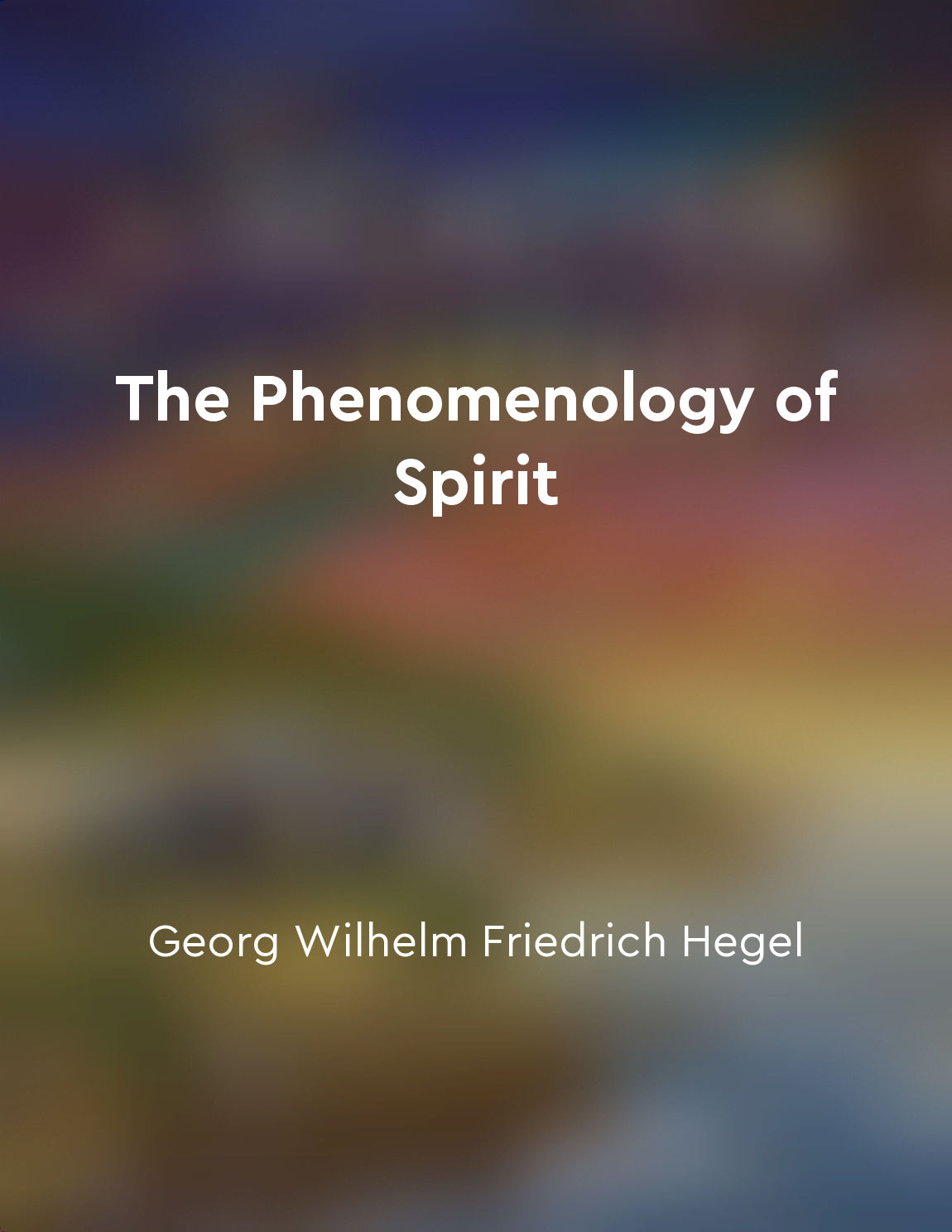Transition from object to subject from "summary" of The Phenomenology of Spirit by Georg Wilhelm Friedrich Hegel
The movement of Spirit - the restless, self-moving concept - is a perpetual transition from the external world of objects to the internal realm of subjectivity. This transition is not a simple shift from one state to another; rather, it is a complex process of self-realization and self-determination. At the outset, Spirit exists as an object, separated from itself and from the world. It is a mere thing, devoid of self-consciousness and autonomy. Through a series of dialectical movements, Spirit begins to recognize itself in the external world, gradually realizing that its own subjectivity is intertwined with the objects it encounters. As Spirit engages with the world, it comes to understand that the external objects it encounters are not separate and distinct from itself, but rather are manifestations of its own consciousness. In this way, the external world becomes a reflection of Spirit's own subjectivity, a mirror in which it sees itself reflected back. This recognition of the unity between subject and object marks a crucial turning point in the movement of Spirit. No longer limited by external constraints, Spirit begins to assert its own agency and autonomy, transforming itself from a passive object into an active subject. It becomes aware of its own power to shape and mold the world according to its own desires and intentions. Through this process of self-realization, Spirit transcends the limitations of mere objecthood and emerges as a fully self-conscious and self-determining subject. It comes to understand that the external world is not something to be passively accepted, but rather something to be actively engaged with and transformed. In this way, Spirit achieves a unity of self-consciousness and objectivity, realizing that the two are not separate but inseparable aspects of the same underlying reality.Similar Posts

Embrace challenges as opportunities for growth and transformation
When challenges come our way, we often view them as obstacles that impede our progress or happiness. We may feel overwhelmed, f...
Free association reveals unconscious thoughts
The concept of free association is a fundamental tool in psychoanalysis. By allowing patients to speak freely without censorshi...
Simone de Beauvoir explored the concept of "the other" in existentialist philosophy
Sarah Bakewell delves into the existentialist philosophy of Simone de Beauvoir, particularly her exploration of a crucial conce...

Past sins return to claim souls
In the quiet stillness of the night, when the world is enveloped in darkness and shadows dance along the walls, the past comes ...
Embrace the impermanence of life
The impermanence of life is a fundamental truth that we must come to terms with. Everything in this world is subject to change,...
Blurring boundaries of self
The sense of self is a complex and multifaceted entity that is constantly evolving. In the book 'The Man Who Wasn’t There', Ani...
True nature of self revealed
The true nature of self revealed is a concept that delves into the fundamental question of who we truly are. It is a search for...

